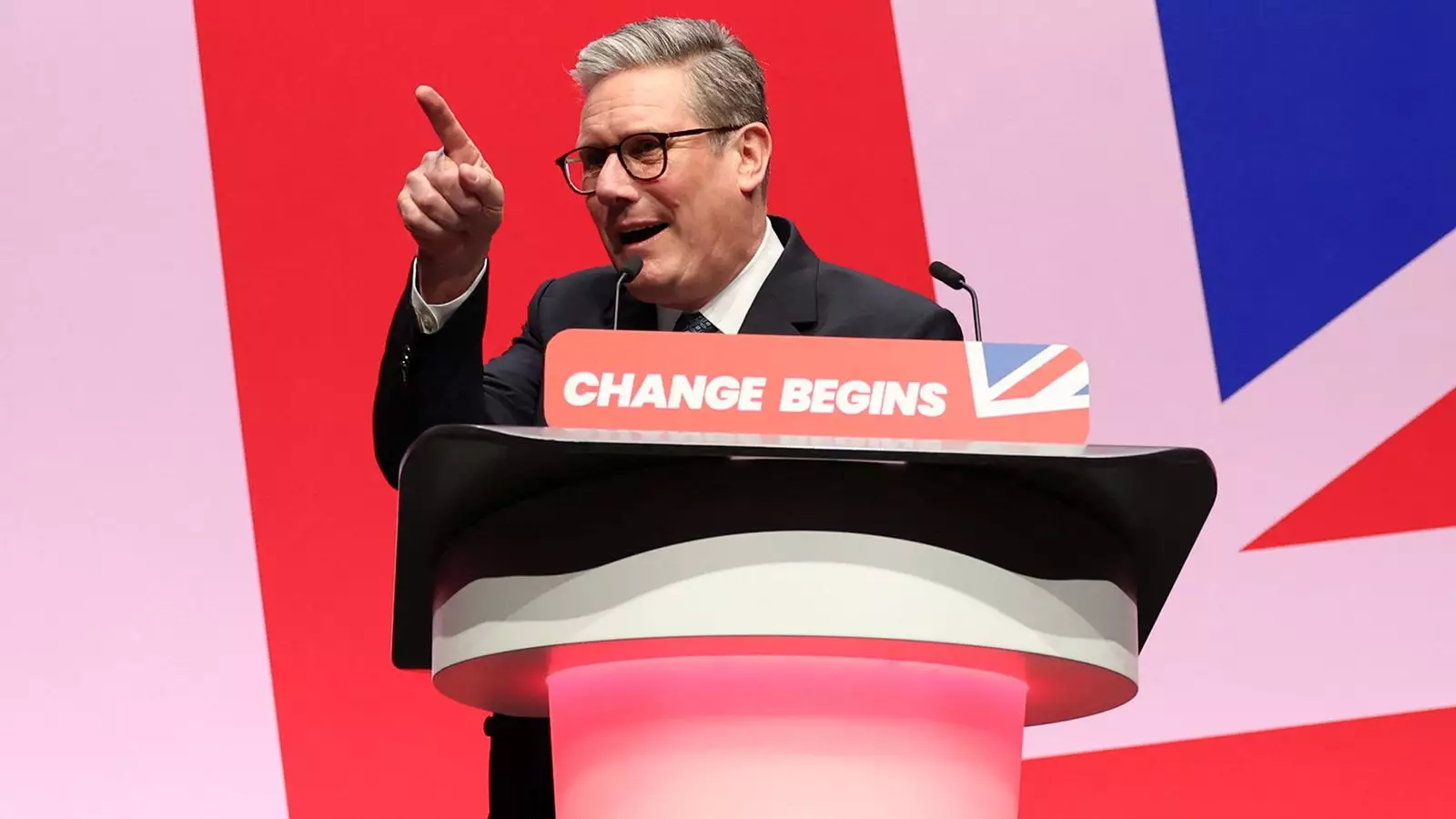In an alarming twist of fate, the specter of increasing child poverty under a Labour government has emerged as a real concern. For the first time in history, British children are projected to face an uphill battle as economic cuts become the norm, leading children to the brink of poverty. Political dynamics are shifting, and Labour’s approach is under fire. Former party leader Jeremy Corbyn and a coalition of cross-party MPs are sounding the alarm, insisting on a notable wealth tax aimed at the richest in society. The question remains: why is the government prioritizing defense spending while neglecting the needs of its most vulnerable citizens?
The joint statement puts forth a straightforward assertion: the government has consciously chosen to allocate its resources, with an appalling disregard for the consequences faced by disabled individuals and children pushed further into poverty. Increasing investment in military endeavors, while economic pressures mount in various sectors, raises critical questions about values and priorities.
The Concerning Shift in Political Rhetoric
The signatories of the letter—ranging from Corbyn to suspended Labour MPs and even Green figures—are vocal about Labour’s actions paving the way for the rise of Reform UK. This trend is unsettling and indicative of a troubling narrative that flourishes in times of discontent. The fear is palpable that by mimicking the dangerous rhetoric surrounding immigration and minority communities, Labour risks endorsing harmful scapegoating that ultimately damages societal cohesion.
It is abundantly clear that the current political climate necessitates a radical shift in both rhetoric and policy. The urgent call for a wealth tax on those with assets exceeding £10 million is being touted as a critical solution. The funds garnered from such a measure could be funneled back into essential services such as healthcare and education—areas sorely neglected in favor of military funding.
Reform UK’s Rise: A Threat or a Wake-Up Call?
Reform UK appears to be capitalizing on Labour’s faltering momentum, as it gears up to launch its local election campaign, potentially capitalizing on Labour’s missteps in handling economic hardship. Polls reveal that Reform has stolen a lead, and the stakes couldn’t be higher as the traditional left confronts its faltering ideals amidst rising discontent.
The “alternative path” suggested by Corbyn’s coalition is a fundamental restructuring of fiscal policy aimed at dismantling economic inequality. Advocating for higher taxes on the wealthy and multinational corporations isn’t just a radical idea; it’s a necessary stance in a society grappling with the aftershocks of austerity and neglect. The introduction of rent controls and the nationalization of essential services could create a model of economic justice desperately needed in today’s climate.
As Labour struggles to unify its base and respond effectively to these pressing challenges, the voices within seem increasingly discordant. Many party members express dissatisfaction with the prevailing austerity measures, despite the management’s insistence that such an approach is vital for long-term economic recovery. There is a burgeoning frustration that could fuel further division within the party as voices clamoring for social equity and justice grow louder.
A Strained Fiscal Proposal
The spring statement from Chancellor Rachel Reeves paints a sobering picture: £2.2 billion earmarked for defense over the next year symbolizes a series of choices that neglect the critical social safety nets Erasing support for vulnerable populations while deepening departmental spending cuts is a recipe for disaster. Analyses predict that nearly 250,000 additional people—children included—will be thrust into relative poverty by 2030; material enough for legitimate concern about the future of British society.
Yet Reeves maintains a cautious defense against havoc, arguing that job creation strategies counterbalance these troubling assessments. However, there’s a growing skepticism regarding the efficacy of such strategies in addressing systemic poverty. The pain felt by working families is already palpable, and Reeves’s reluctance to embrace progressive reforms might only escalate the discontent brewing within society.
The Public Opinion Shift—A Call for Tax Equity
A recent YouGov poll indicates strong public support for tax increases on the wealthiest, underscoring a shift in public opinion toward a fairer tax distribution model. Support for a 2% wealth tax on those with net assets exceeding £10 million reveals a populace tired of a political system that disproportionately favors those already in power. Public sentiment is clearly leaning toward the idea that the burden of supporting welfare services should be shared more equitably across society.
The question must be asked: at what point will the political elite recognize their increasingly tenuous position if they continue to disregard the voices of the very people they claim to represent? The need for a proactive, ethical response to this ironclad reality is more urgent than ever as rising child poverty threatens to undermine the fabric of British society. While Labour grapples with internal discord and considerable external pressures, the chance to construct a truly inclusive and equitable path forward hangs precariously in the balance.

Leave a Reply